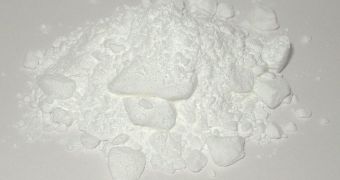professor of clinical neuropsychology Barbara Sahakian, who has been studying chemicals commonly referred to as cognitive enhancers for the better part of a decade, has recently launched a new debate into the ethical and practical aspects of using such medication.
Smart drugs are not taken under prescription by those who suffer from mental disorders, but rather by perfectly-healthy individuals who want to augment their mental performances. The number of people living a lifestyle based on such chemicals is rising steadily.
What Sahakian is wondering is how these habits will change our society. Will it be for good or for worse? Why are people so keen on using these drugs, rather than achieve higher performances through more “conventional” methods? What are the deeper implications of such drug use?
These questions, and more, make up the bulk of the debate centered on smart drugs. One possible explanation for the increased incidence of such drug use could be that the global business and workplace environment has become so competitive that people simply feel they cannot cope otherwise.
Certain professions – doctors, soldiers, policemen and emergency responders – are obviously under more pressure than those implying the use of a computer for 8 hours a day. Taking care of both themselves and those around them can be very stressful for the aforementioned individuals.
This may give them a justification of sorts for the use of smart drugs. However, most of them already use stimulants, predominately caffeine and coffee. But doctors cannot afford to use the 600 milligrams of caffeine daily required for maximum effect, since the compound also causes tremor.
Other side-effects sometimes include failures in attention, concentration and problem solving, as well as impaired psychomotor performance. It may be that people working in these stress-susceptible areas would stand to benefit from the introduction of new cognitive-enhancing drugs.
One of the drugs used in a new study to improve the cognitive flexibility in sleep-deprived doctors – Modafinil – proved to be very efficient at reducing impulsivity as well. The research was carried out by a team of experts in the United Kingdom.
The group included experts from the University of Cambridge's Department of Psychiatry and the Imperial College London (ICL) Division of Surgery. Details of the research appear in the latest issue of the journal Annals of Surgery.
Cognitive improvements, including flexibility of thinking, and reduced impulsivity, were observed in all 39 test participants. The study implies that it may be possible to replace caffeine with Modafinil, and retain physicians' skill with patients and surgeons' skills with their blades.

 14 DAY TRIAL //
14 DAY TRIAL //